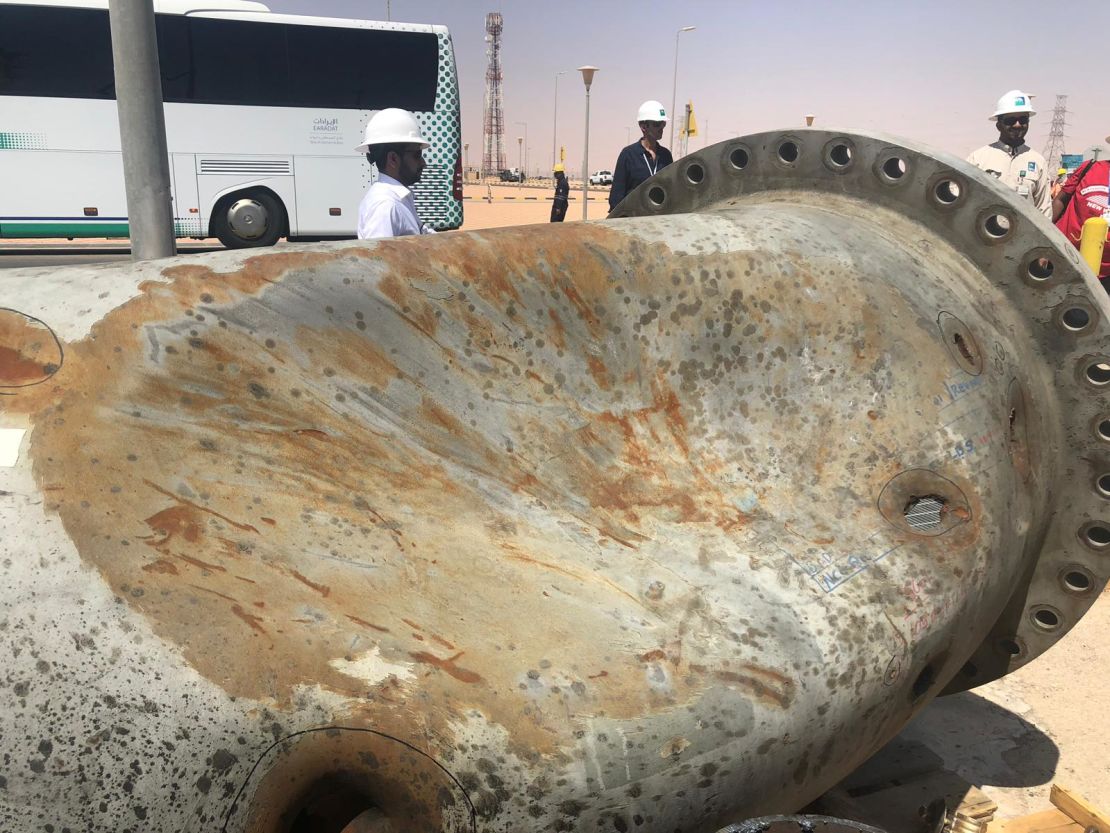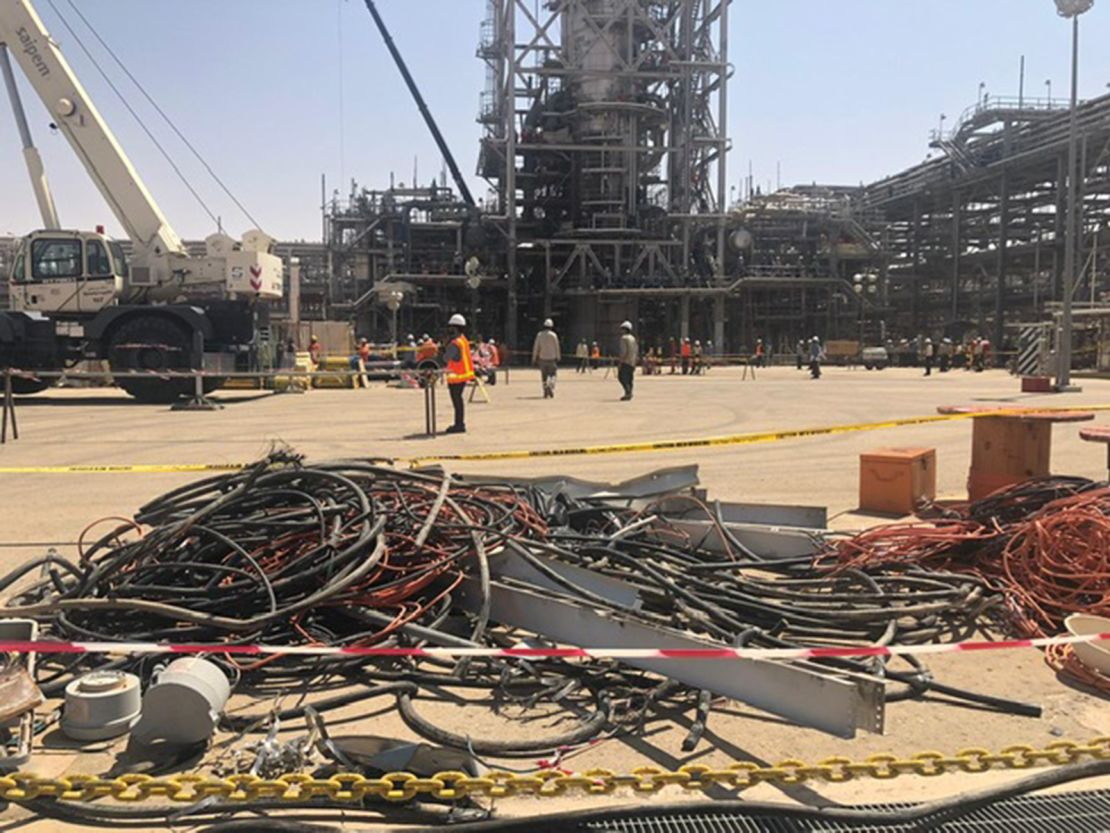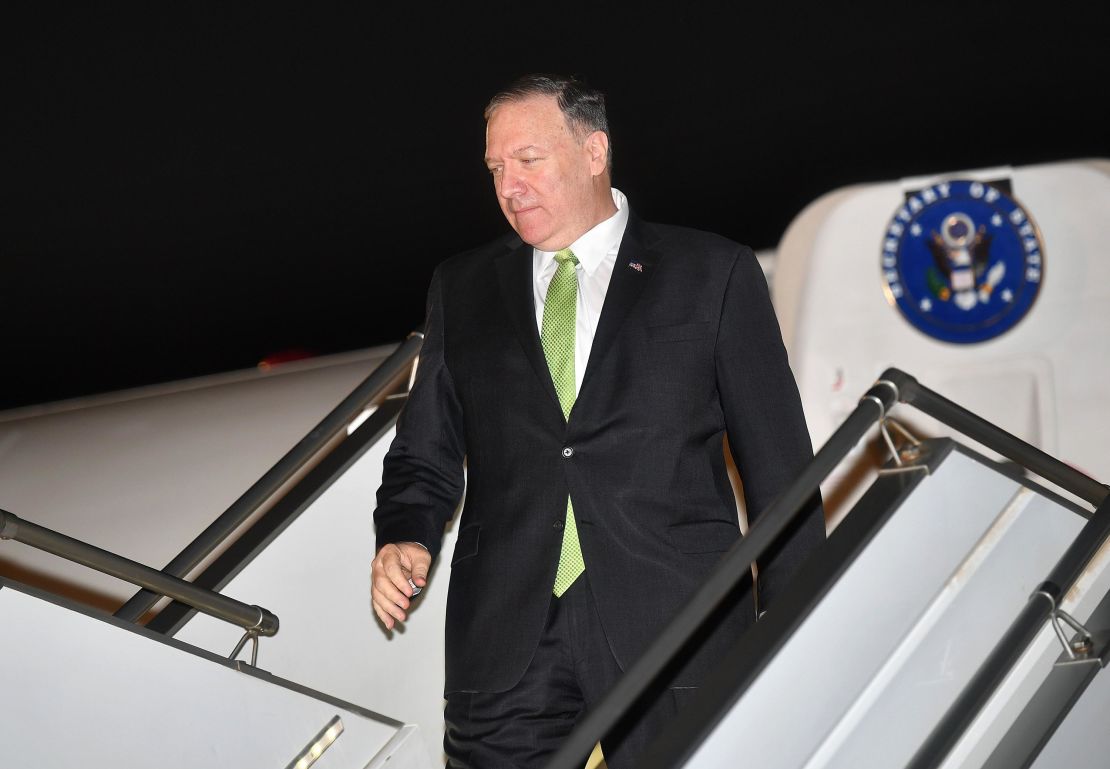Saudi Arabia is not pressing for war, but its options to avoid one are narrowing. And that suits its nemesis Iran just fine.
Nowhere is the squeeze on Saudi’s prospects more obvious than beneath the burnt-out pipes and towers of the Khurais oil plant.
Shrapnel and flaming oil spewed from its petroleum towers as four cruise missiles slammed in to them early Saturday. Quarter-inch-thick steel piping 100 meters from the impact punctured fist-size holes along its now-bent and battered body.
A week later as I visited the site, the Kingdom’s life blood is still being hosed away as workers cauterise the damage with fresh piping and steel plate.
But the balance in this gargantuan regional power play is more easily understood in the capital.

In Riyadh, a bustling but dusty desert city, new skyscrapers climb upward, while beneath the feet of the capital’s more than 4 million residents, a new multibillion rail network burrows downwards.
The economy is on a reasonable footing, and the Kingdom’s Crown Prince Mohammed bin Salman (known commonly by his initials MBS) has bold ambitions to build on it. But the attack last weekend on the cash cow to fund those plans, the oil production facilities of Saudi Aramco, could now be crimped.
In short Saudi has much to lose from war; Iran, which is under the crushing weight of “maximum pressure” US sanctions, less so.
The view in Riyadh is that Iran’s theocracy faces an existential threat. If the religious leaders cannot revive their country’s moribund economy they risk being overthrown. By this logic, hardliners are ready to gamble with an “act of war” by either relieving sanctions or turning the population’s attention from internal problems to outside enemies.
If Saudi is right that Iran was behind the attack, then Tehran, through 18 drones and seven cruise missiles, has delivered Riyadh an object lesson that MBS cannot ignore.
The Kingdom has gone public by putting on display the weapons it says were Iranian made. It said the strike, which knocked out almost half of Saudi’s oil capacity, reducing global output by 5%, was an attack on the international community, risking the global economy, peace and stability.
But what the Saudis are downplaying is where the attack originated. A source close to the investigation says both US and Saudi investigators believe with “a high degree of probability the missiles and drones were launched from an Iranian base.”
Iran calls all of this “maximum slander.”
Its foreign minister has warned of “all-out war” in the event of US or Saudi military strikes against his country and questioned whether Saudi Arabia was prepared to fight “to the last American soldier.” Javad Zarif also said that Iran “won’t blink to defend our territory.”
But government officials won’t be drawn on it. The Saudi coalition military spokesman told CNN their investigation into the launch site is still ongoing, adding that “you can’t accuse, say under international law, a country without having the evidence.”
The effect is now on to slow-roll pressure for a robust response.
The UAE did exactly this earlier this year. Following attacks on four tankers off their coast that the US and Saudi accused Iran of being behind, the Emiratis said they would wait until their investigation is concluded before apportioning blame. Months later, still no conclusion.

Pompeo raises specter of war
During his whistle-stop trip to Saudi and the UAE this week, US Secretary of State Mike Pompeo vowed to take up the case against Iran at the UN General Assembly next week.
The Saudis may feel they have dodged a bullet. Pompeo’s initial reaction to the strikes was to lambast Iran, raising the specter of an immediate military response.

Even before this latest attack, so worried had Saudi become over President Trump’s handling of Iran that the Crown Prince’s brother, on a trip to Washington a few weeks ago, told officials the Kingdom was concerned the US could trigger a regional war.
The message may be getting through this time. Trump has gone from saying the US was “locked and loaded” to saying the Saudis need to take the lead on what to do next. And at the same time ordering new sanctions on Iran. Yet Trump’s action may also be compounding the Saudis’ problems with Iran.
Over the past six months Trump has appeared at times itching to pull the trigger on Iran, then backing away.
In June, following Iranian attacks on tankers in the Strait of Hormuz, Iran shot down a US drone. Ten minutes before a retaliatory strike, Trump said he pulled out to save Iranian lives. His logic: no Americans were killed during the downing of the drone.
Pompeo used the same “no skin in the game” logic when he got to Riyadh this time. “We’re blessed that there were no American killed in this attack, but anytime you have an act of war of this nature, there is always risk that that could happen,” he said.
While providing Riyadh with temporary relief, the White House’s go-to-response to Iran reveals just how itchy Trump’s trigger finger is, and that each time he doesn’t scratch the itch he needs to reach for an excuse, why not.
His threats have become a series of invisible red lines that his enemies see all too clearly as weakness, and a path to thread their lies through.
A Saudi intelligence assessment following the latest attack reveals Iran may have plotted this attack because it failed to get what it wanted with the tanker attacks and hijackings in the Strait of Hormuz this summer.
The irony of all this is that Obama earned the ire of America’s Middle East allies by talking tough then backing down, specifically failing his own red line in Syria.
Trump’s more outrageous bombast may prove an even more flimsy construct, not just failing once but multiple times. By doing that, it may sow enough confusion that war becomes inevitable.



















